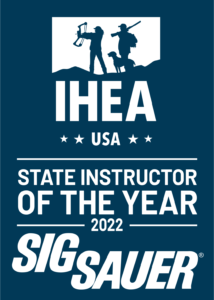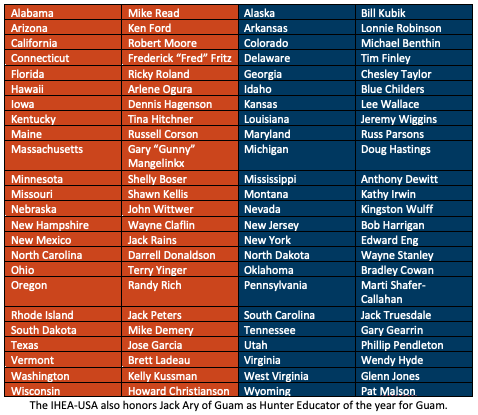The IHEA-USA Honors Top Instructors From Around the Nation

For the second year in a row, the International Hunter Education Association – USA, in partnership with SIG SAUER announces the top 50 Volunteer Hunter Educators in the United States.
With over 50,000 volunteer hunter educators in the United States (the second largest volunteer corps to volunteer firefighters) vying for the award, this prestigious IHEA-USA Instructor of the Year Award presented by SIG SAUER honors only one hunter educator in each state for rising above and beyond their normal duties in 2021. Above and beyond means not only spending countless hours offering volunteer time teaching, but also often includes personal hours mentoring, volunteering time to other outdoor programs, teaching additional clinics and classes, contributing valuable ideas to their state Hunter Education programs, and performing excessively more to create safe hunters and shooters than is expected of any volunteer.
Alex Baer, Executive Director of the IHEA-USA, states, “We will never be able to adequately thank these volunteers that freely offer their personal time to help others. Their dedication and commitment are only superseded by their value to our industry as ambassadors to the next generation of hunters. Recent research has highlighted the need for these volunteers even amidst the increase of online hunter education opportunities for the public. This same study shows that a portion of the public prefers in-person education and hands-on mentoring by trained educators. Whether someone is new to hunting or a veteran of many years, we all benefit from a safer experience in the field. Thank you to all hunter education volunteers and congratulations to the recipients of this year’s IHEA-USA Instructor of the Year Award made possible by our incredible partner, SIG SAUER.”
Meet the IHEA-USA Instructor of the Year for your state:

The IHEA-USA asks that if these individuals are known or recognized by you, that you thank them for their valuable commitment to teaching firearms safety and conservation. Without them, we’d have more accidents afield and fewer hunters supporting our industry.